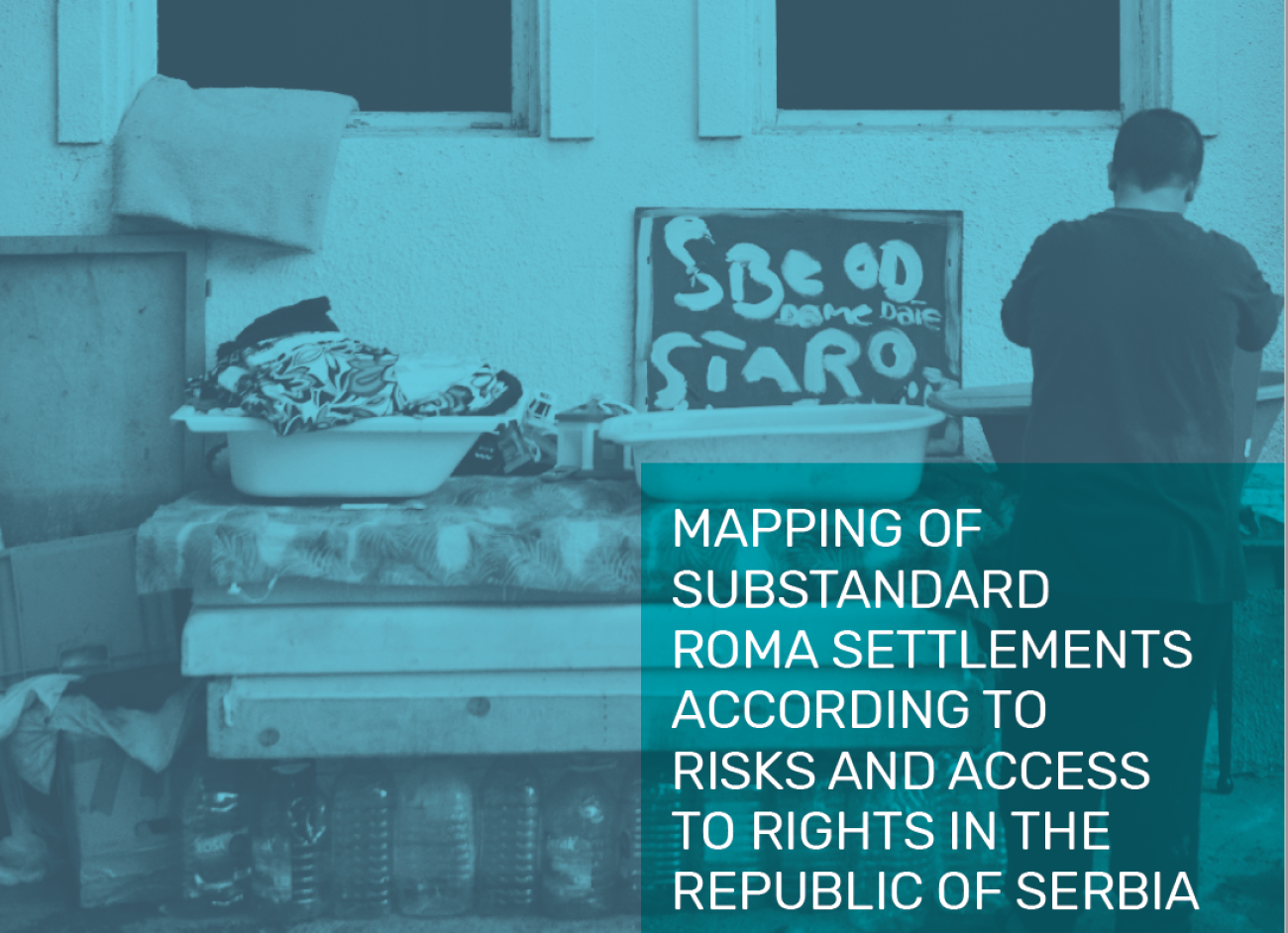Almost 20% of the residents of the Roma substandard settlements mapped in Serbia have no or irregular access to safe drinking water, while over 55% have no or irregular access to sewer networks – shows latest UN/SIPRU assessment

The assessment covers 702 substandard Roma settlements in 94 local governments in the Republic of Serbia, with a population of about 168,000.
Belgrade, 30 November 2020. – The Social Inclusion and Poverty Reduction Unit of the Government of the Republic of Serbia and the United Nations Human Rights Team, with support from the Office of the United Nations High Commissioner for Human Rights (OHCHR), presented the findings of a mapping exercise covering 702 substandard Roma settlements in 94 local governments in the Republic of Serbia, with a population of about 168,000.
The assessment, launched in March with a view to monitoring immediate needs for urgent support to residents of substandard Roma settlements emerging with the onset of the COVD-19 epidemic, surpassed the boundaries of crisis response and provided an essential, previously unavailable, situation assessment and baseline for further policymaking and planning in the context of the right to adequate housing, social protection and wider inclusion of the Roma in the Republic of Serbia.
According to the assessment, almost 20% of the population of the Roma settlements mapped in Serbia have no or irregular access to safe drinking water, while over 55% have no or irregular access to sewer networks. Further, 14.5% of the population mapped have no or irregular access to electricity, which posed an additional burden on the people living in substandard settlements. The population of the mapped settlements is predominantly engaged in informal economy (seasonal work, collecting recyclable materials, trade, music etc.), while employment in public enterprises, predominantly those providing utility services, is identified as the population’s prevailing economic activity in only 11.4% of the settlements.
With the outbreak of COVID in the world and in Serbia, our urgent attention was given exactly to those who experienced the most immediate risk living in substandard settlements across the country, when it concerns the access to water, basic goods and essential assistance, together with the Government and the partners on the ground. UN, its Office for Human Rights, as well as other agencies, will continue to advocate for a shift in equality, non-discrimination and inclusion vis-à-vis the men and women who are most left behind, to offer support in changing the policies and the practices, and to providing life and health saving assistance, together with the Government and the wider society. In the current and future crisis, no one should be left unequal or disproportionately affected.
These figures raise concerns about the level of enjoyment of fundamental human rights by the people living in the mapped settlements, the actual possibilities of following the recommended hygiene measures for the prevention of and protection against coronavirus infection, and increased risk of socio-economic marginalisation, social exclusion and poverty stemming from the risk of prolonged coronavirus epidemic, as well as in the long term.
“The Ministry of Public Administration and Local Self-Government will continue to analyse, monitor the impact and take an increased interest in, as well as increase the resources for addressing the problems faced by the Roma living in substandard settlements in the Republic of Serbia,” stated Minister Marija Obradović.
She added that, with the onset of the COVID-19 epidemic, the Ministry called on local governments and metropolitan municipalities in Serbia to provide access to safe drinking water for all substandard settlements, with over 33,000 people. The Minister also presented other activities to the conference participants, with emphasis on those implemented by local governments with support from the EU through IPA programmes, aimed at an overall improvement of living conditions in substandard settlements.
For the first time, with a view to measuring the enjoyment of human rights by the population of substandard Roma settlements, this assessment collected detailed data on their access to safe drinking water, sewerage and electricity, sustainable income sources and exposure to additional risks in the current epidemiological context. An important role in this process was played by the Association of Roma Affairs Coordinators, the established institutional mechanisms for Roma inclusion at the city and local government level, and many civil society organisations.
The data collected constitute a crucial resource and a sound basis for planning measures, both for recovery and prevention of future risks affecting the most vulnerable Roma groups, and for the achievement of the Sustainable Development Goals under Agenda 2030.







